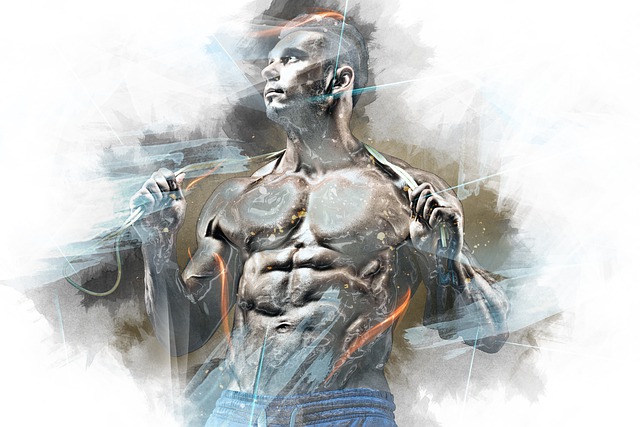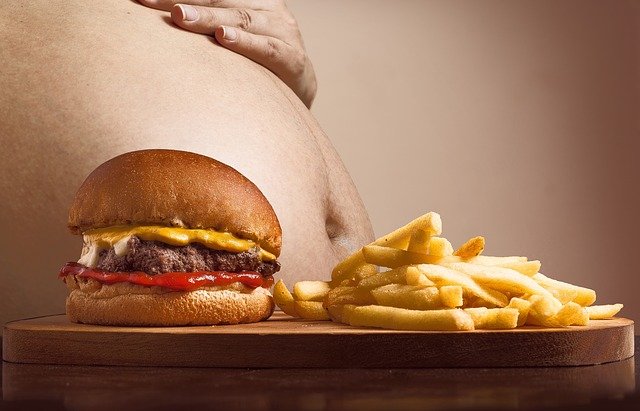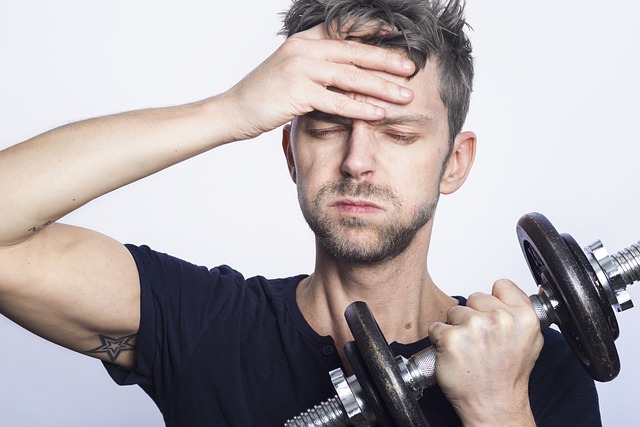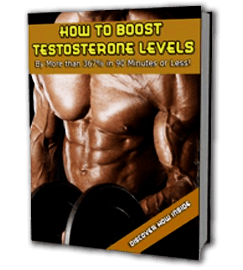Is there a connection between HIIT and Hormones?
Yes, there most definitely is, which we’re going to cover in detail below.
But first, we need to establish what HIIT actually is….
HIIT is an intense and brief exercise protocol that burns calories, helps with weight loss, builds muscle and much more.
Over recent years, research has taken a major interest in this workout type…
Revealing hormonal benefits that go beyond weight loss and strength-building.
So read on to take a closer look at the link between HIIT and hormones in men.
HIIT Boosts Human Growth Hormone
Human growth hormone (hGH) is responsible for repairing muscle tissues, building muscle mass, burning fat, and increasing metabolism.
As such, this hormone is key to bodily health and maintenance.
It’s no wonder, then, that much research has been conducted to find out how HIIT affects the amount of hGH in the body.
In a 2018 study, a direct link between HIIT and hGH was found.
What researchers discovered is that HIIT actually increased the total amount of growth hormone secreted in participants within the study.
The hormones are secreted directly after your intense workout and also while you sleep, indicating that HIIT’s effects on hGH are long-lasting.
An increase in hGH that takes place during sleep means your body is producing this strength-building hormone even when you are inactive.
This might be why HIIT training has been shown to be especially beneficial in small intervals, unlike other fitness programs that require more extensive training.
With HIIT, less is truly more!
HIIT Boosts Testosterone

As most people know, testosterone is often talked about as being key to male fitness.
Though HIIT is a relatively new, albeit popular, method for boosting testosterone, recent studies have highlighted measured increases of testosterone in men who partake in HIIT.
What they found was that HIIT increases the total testosterone levels found in less active men by approximately 17%!
Not only that, but these levels were maintained even when study participants decreased the amount of training from 150 minutes weekly to just 3-6 minutes a week.
Impressive, right?
These findings indicate that HIIT could be a simple and effective way at helping men increase and hold onto higher levels of testosterone.
High testosterone has been proven to lead to a healthier heart, better fat distribution, stronger muscles, more red blood cells, and more.
HIIT Might Reduce the Appetite Hormone Ghrelin

Working out is generally associated with increased appetite. All of that calorie expenditure needs to be replaced, surely?
Conversely, findings have revealed that HIIT may help with the hormone ghrelin by lowering appetite.
This is because intense workouts may actually improve the regulation of one’s appetite.
Without getting too technical, HIIT boosts interleukin-6 (IL-6), which is a protein known for affecting levels of ghrelin in the body.
Ghrelin is responsible for stimulating appetite and storing fat.
According to a study on HIIT on diabetics, this hormone is also naturally low in those with diabetes and might help with appetite regulation for those with diabetes.
That said, the research on this is not conclusive, especially for overweight individuals, so your milage may vary.
In my case I’ve found that intervals in the pool cause intense hunger, but sprints on land tap hunger down for several hours.
HIIT Reduces Insulin Levels
Speaking of diabetes, HIIT is also known to reduce insulin levels, helping lower blood sugars in those who suffer from the disease.
Much research has been done on the relationship between HIIT and the regulation of insulin levels.
Most notably is the apparent decrease in insulin resistance that occurs when diabetics partake in HIIT.
The study found that those with type 2 diabetes, and those who are at risk of developing type 2 diabetes…
Have a reduction in their fasting glucose levels, leading to better regulation of blood sugars.
HIIT Increases Irisin Levels
HIIT has also been shown to increase irisin levels.
Irisin is a hormone that is responsible for skeletal muscle health.
It is also known for increasing how much energy you use during a high-energy workout. In return, your body reduces insulin resistance.
In a study on irisin levels during HIIT compared to aerobic exercises, there was a significant increase in irisin levels for those who participated in a single session of HIIT.
Meanwhile, those who participated in aerobic exercises did not have a rise in irisin levels.
In other words, not all workout exercises have the added bonus of increased irisin levels.
An additional study revealed that just a single session of an HIIT training program can raise irisin levels by as much as 12%.
When you exercise, irisin helps transform unhealthy fat that’s being stored in your body into healthy fats that burn calories and increase your metabolism.
HIIT May Increase Leptin Levels
Leptin is a hormone that is often referred to as the starvation hormone due to how it makes you feel full.
Basically, the hormone sends signals to your brain, telling it that you’ve had enough to eat. As such, this hormone is vital to helping maintain healthy energy levels.
Some researchers have suggested that the increase in testosterone from HIIT sessions might counterbalance the effects of high leptin levels.
This is because testosterone is a known inhibitor of the leptin hormone.
In a recent study, however, they have found that this is not necessarily the case.
Though testosterone is increased during HIIT workouts, data suggests that the intermittent nature of this style of workout…
Means that testosterone production does not affect the amount of leptin post-workout.
HIIT Can Increase Cortisol

It’s important to note that though HIIT presents numerous benefits to hormonal regulation in men…
Overtraining or improper recovery between workouts may lead to an increase in cortisol, the stress hormone.
Research shows that long-term exposure to excessive cortisol may cause cognitive decline, hormone dysregulation, and other health issues.
Over-training using an HIIT workout can have adverse effects on the efficacy of your physical fitness, leading to injuries and hormone imbalances.
The take home?
Go hard, but allow yourself plenty of time to recover, otherwise your workouts can backfire on you.
And make sure you spend at least 5 minutes warming, as injuries are much more likely to occur with this type of training.
HIIT and Hormones in Men – Conclusion
While it’s undeniable that HIIT can offer many benefits to those interested in the intense workout style, it’s important not to overdo your HIIT workout.
Consider working with a trainer and staying up-to-date with physicals from your doctor to ensure you’re not over-stressing your body.
So long as you don’t overdo it, you will likely experience many of the above benefits for your health as you continue on your HIIT journey.


